
5 Signs You’re Not Drinking Enough Water and How to Fix It
It’s easy to dismiss mild symptoms, but if you notice persistent thirst, dark urine, headaches, fatigue or dizziness, you may be dehydrated; sev ...

It’s easy to dismiss mild symptoms, but if you notice persistent thirst, dark urine, headaches, fatigue or dizziness, you may be dehydrated; sev ...
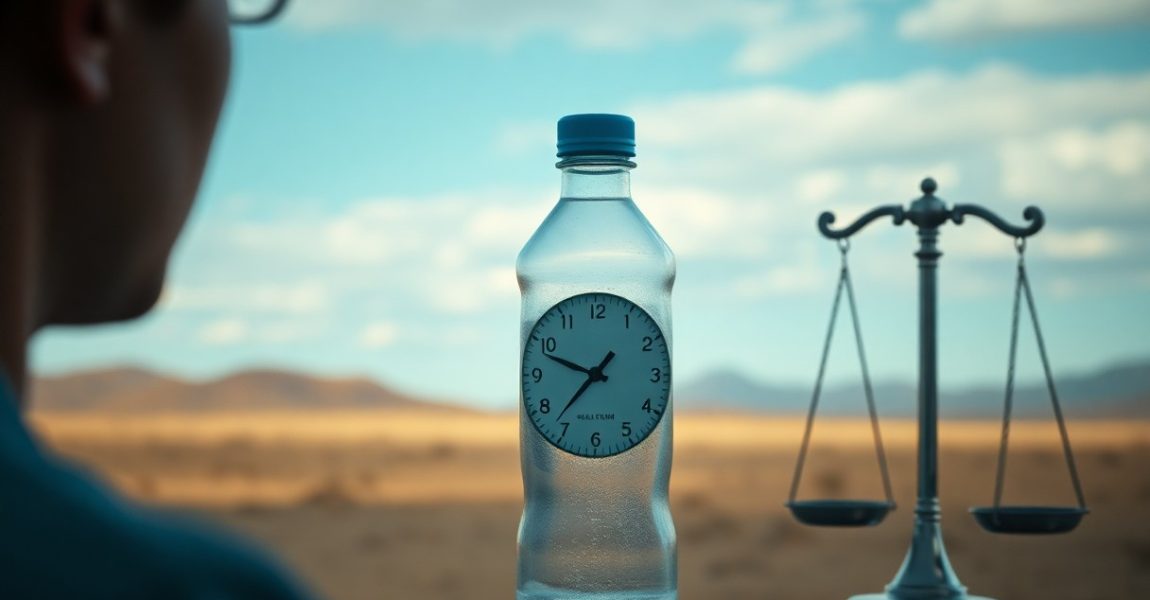
You might not realize it, but dehydration can significantly slow down your metabolism , affecting how efficiently your body burns calories and processe ...
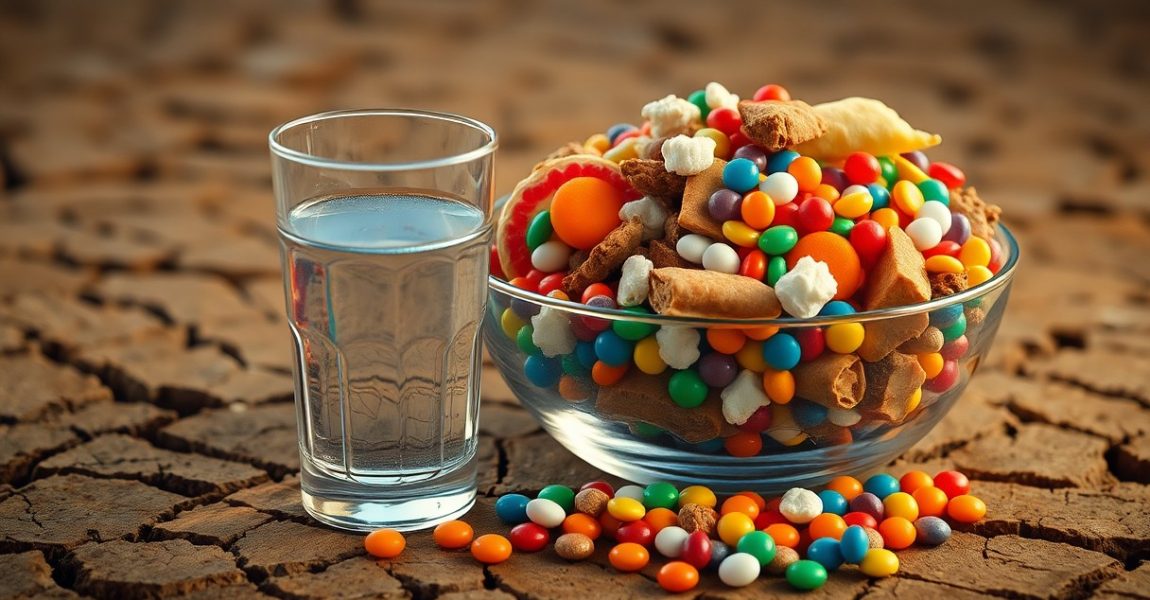
Low hydration doesn’t just lead to thirst; it disrupts the body’s ability to regulate blood sugar and energy balance. Studies reveal that even mild dehydration can reduce your energy metabolism by up to 10%, prompting your brain to misinterpret signals and trigger cravings for high-sugar, high-fat foods. This happens because your body mistakes thirst for hunger, directing you toward quick energy fixes that appear to restore balance but actually worsen dehydration and insulin response. Your hydration status affects hormones like ghrelin and leptin, which control appetite, making the struggle to resist junk food even more intense when you’re dehydrated. Beat sugar and junk food cravings naturally — stay hydrated with alkaline water to keep your body balanced and your appetite in check
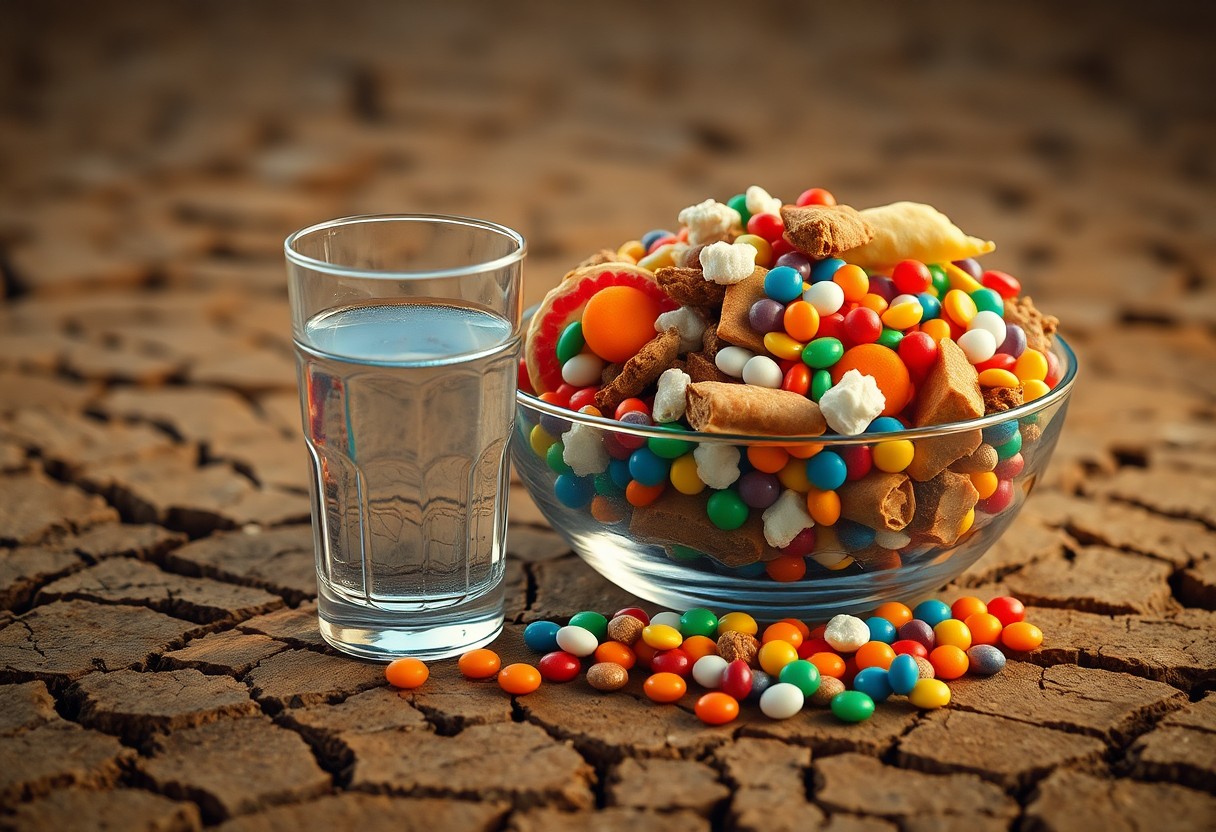
Your body’s response to dehydration can mistakenly send mixed signals to your brain, making you crave quick energy sources like sugar and junk food. As your hydration levels drop, your cells struggle to function efficiently, prompting the brain to look for a fast fix to maintain energy. This often translates into a heightened desire for sugary snacks and processed foods, which offer immediate calories but fail to address the underlying need: rehydrate. This biological confusion can perpetuate unhealthy eating habits that worsen dehydration and contribute to poor nutrition. Choose a 5-gallon alkaline water supply to stay fully hydrated, curb sugar cravings, and support healthier choices every day
Dehydration disrupts the balance of hunger-regulating hormones such as ghrelin and leptin. When you’re dehydrated, ghrelin—the so-called hunger hormone—increases, signaling your brain that you need food, even if your body’s real issue is lack of water. Meanwhile, leptin levels drop, dulling the feeling of fullness. This hormonal imbalance fuels persistent hunger and sugar cravings, tricking you into eating more than you need and often choosing quick, carbohydrate-rich foods for instant relief.
Inadequate hydration affects your body’s ability to maintain stable blood glucose, leading to fluctuations that heighten cravings for sugary foods. When your blood sugar dips unexpectedly due to dehydration, your brain signals an urgent need for fast-acting carbohydrates. This can cause you to reach for sweets or junk food to rapidly raise blood glucose levels, but these choices often cause further instability, creating a vicious cycle of cravings and energy crashes.
Extended dehydration reduces plasma volume, resulting in concentrated blood glucose and impaired insulin response. Studies show that even mild dehydration decreases insulin sensitivity by up to 15%, making it harder for your cells to use glucose effectively. This triggers your pancreas to pump more insulin, which may lead to sharper blood sugar drops and stronger urges for sugary snacks. Understanding this physiological process can empower you to break the cycle by prioritizing hydration over quick fixes.
Your brain often struggles to distinguish between thirst and hunger signals, leading to cravings for sugary or junk food. This confusion arises because both sensations activate similar neural pathways, leaving you reaching for a snack when your body actually needs hydration. Commonly, if you notice sudden and intense cravings, your body might be subtly asking for more water.
After recognizing this misinterpretation, you can prevent unnecessary calorie intake by simply drinking water.
Sensory inputs from your mouth and stomach send signals to the hypothalamus, which regulates both hunger and thirst. Because these signals share similar neural circuits, dehydration can easily be mistaken for hunger, especially with overlapping indicators like dry mouth or stomach sensations. Studies reveal that up to 40% of people misinterpret thirst cues, leading to increased intake of calorie-dense foods. Becoming aware of this overlap helps you pause and assess whether a glass of water, rather than a snack, satisfies your body’s real need.
Emotions significantly influence your hydration status and food decisions. Stress and fatigue reduce sensitivity to thirst signals while amplifying cravings for comfort foods high in sugar and fat. When dehydrated, cortisol levels rise, intensifying these urges, and creating a vicious cycle where you reach for unhealthy snacks instead of water. After experiencing emotional dips, you might notice stronger impulses toward junk food driven more by emotional dehydration than physiological hunger.
Delving deeper into emotional hydration reveals that your body’s stress response can dampen thirst awareness, leaving emotional eating as a misguided coping mechanism. For example, experiments with stressed individuals show they consume 25% more sugary snacks if dehydrated, compared to well-hydrated peers. This indicates that psychological state and hydration status jointly affect your ability to make mindful, healthy food choices. Cultivating both emotional awareness and hydration habits can reduce your dependency on sugar-laden comfort foods.
Dehydration can significantly disrupt your energy metabolism, leading to increased cravings for sugar and junk food as your body desperately seeks quick fuel. As your cells struggle to function efficiently without adequate water, your energy levels plummet, prompting your brain to signal for high-calorie, rapidly absorbable foods. This creates a vicious cycle where dehydration sparks unhealthy cravings, and indulging in sugary or processed foods further drains your energy reserves, leaving you feeling sluggish and perpetually thirsty, trapped in an exhausting loop.
Sugary snacks and processed junk food contain high amounts of salt and sugar, which can intensify dehydration by increasing your body’s demand for water to process these substances. Consuming such foods stimulates insulin spikes that cause water to shift out of cells and into your bloodstream, making your body lose more water through urine. Elevated sodium levels also cause fluid retention initially but ultimately promote dehydration. This combination not only deepens your thirst but also hampers proper hydration, making it harder for you to break free from the dehydration-sugar craving cycle.
Consuming sugar-rich snacks can momentarily boost your mood and energy due to rapid glucose absorption, tricking your body into feeling temporarily revitalized. However, this relief is fleeting, often followed by a sharp energy crash that magnifies fatigue and dehydration symptoms. Over time, recurring consumption of these foods worsens metabolic imbalances and fluid retention problems, promoting chronic dehydration and making you increasingly dependent on these harmful foods for perceived energy boosts.
These repeated energy crashes lead to a steady decline in your metabolic health, with chronic dehydration reducing your cells’ ability to produce ATP efficiently—the molecule responsible for energy. You may find your body’s stress response increases cortisol levels, which drives further sugar cravings, perpetuating a damaging cycle. Studies show that individuals who consume excessive sugary foods report increased daytime fatigue and decreased cognitive function, underscoring the long-term toll this short-term relief exacts. Breaking this pattern requires attentive hydration and avoiding quick-fix sugary foods that ultimately compromise your energy and well-being.
To disrupt the cycle of dehydration triggering sugar cravings, focus on replacing sugary snacks with healthier alternatives and increasing your water intake. Keep a water bottle handy and opt for naturally sweet fruits if cravings hit, reducing junk food temptations. You can explore Three Easy Ways to Reduce Sugar Cravings • Health Blog for tailored tips that support sustained changes in your diet and hydration habits. This approach eases withdrawal and improves your energy levels, enhancing overall well-being.
Address dehydration by setting small, achievable water goals throughout your day. Drinking water before meals can reduce your likelihood of mistaking thirst for hunger, significantly lowering junk food intake. Incorporate herbal teas or infused water with lemon or cucumber to boost flavor without extra sugar.
This recalibration helps suppress unnecessary sugar cravings effectively.
Making hydration a seamless part of daily life involves structuring it around your regular activities. Tie water drinking to established habits, like having a glass upon waking, before each meal, and during breaks. Consider setting hourly reminders or using hydration tracking gadgets that alert you when it’s time to drink. This boosts your consistency, keeping dehydration—and related junk food urges—at bay.
Tried-and-tested methods to embed hydration include preparing water bottles the night before, choosing smart containers that track intake, and replacing coffee or sugary beverages with water-based options. Keeping water visible on your desk or counter serves as a constant prompt to sip regularly. This not only prevents dehydration but also curbs the triggers that provoke snacks high in sugar and unhealthy fats throughout the day.
As you refine your approach to nutrition, integrating hydration as a foundational element can reshape how you address cravings and dietary choices. A deeper understanding of your body’s hydration status offers a new dimension in managing sugar and junk food urges, emphasizing prevention rather than reaction. This perspective encourages a holistic view that links fluid intake with metabolic signals, potentially reducing the reliance on restrictive dieting and enhancing overall well-being.
Nutritional guidelines traditionally prioritize macronutrient and calorie intake, but emerging models advocate for hydration’s role in these frameworks. You may soon find recommended daily water intakes personalized based on activity, climate, and metabolic needs, aligning fluid consumption directly with appetite regulation. This shift could help decrease excessive sugar cravings, supported by evidence linking optimal hydration to balanced hormone levels like ghrelin and leptin, which govern hunger and satiety.
Recent studies reveal that maintaining adequate hydration can significantly influence your brain’s reward systems, dampening the desire for high-sugar foods by regulating dopamine pathways. For example, a 2023 clinical trial found that participants increasing water intake by 1.5 liters daily reduced their consumption of sugary snacks by 30% over six weeks, highlighting hydration’s potential in craving management strategies.
Delving deeper, research underscores how even mild dehydration triggers stress responses that exacerbate dopamine-driven cravings, creating a feedback loop where thirst is mistaken for hunger, particularly for sweet and high-fat foods. Neuroimaging studies show decreased activity in the prefrontal cortex during dehydration states, impairing your decision-making ability to resist junk food. By optimizing hydration, you can enhance cognitive control mechanisms and stabilize blood sugar fluctuations, effectively reducing impulsive eating episodes linked to dehydration-induced cravings.
A: When the body is dehydrated, it often sends signals that can be misinterpreted as hunger, leading to increased cravings, especially for high-sugar and high-fat foods. This happens because the body is seeking quick energy sources, which sugar and junk food provide, to compensate for the stress caused by insufficient water levels.
A: Yes, increasing water intake can help minimize cravings for sugar and junk food. Staying well-hydrated supports proper bodily functions and can reduce false hunger signals. Sometimes what feels like a food craving is actually a sign of mild dehydration, so drinking water before reaching for a snack may help curb unnecessary eating.
A: The brain uses similar regions to signal both thirst and hunger, and when dehydrated, the body may misinterpret thirst cues as hunger. This miscommunication leads individuals to consume food, particularly energy-dense options, thinking they need to satisfy hunger rather than rehydrating.
A: Yes, foods that are high in sugar and fats are commonly craved during dehydration. These items provide rapid energy boosts, which the body mistakenly seeks when lacking fluids, even though they do not address the need for hydration and may worsen dehydration.
A: To manage cravings related to dehydration, it is helpful to maintain consistent hydration by drinking water regularly throughout the day. Additionally, opting for nutrient-rich snacks with balanced electrolytes instead of sugary or fatty junk foods can satisfy hunger cues while supporting hydration. Monitoring thirst levels before eating and prioritizing water intake during snack times are effective approaches.
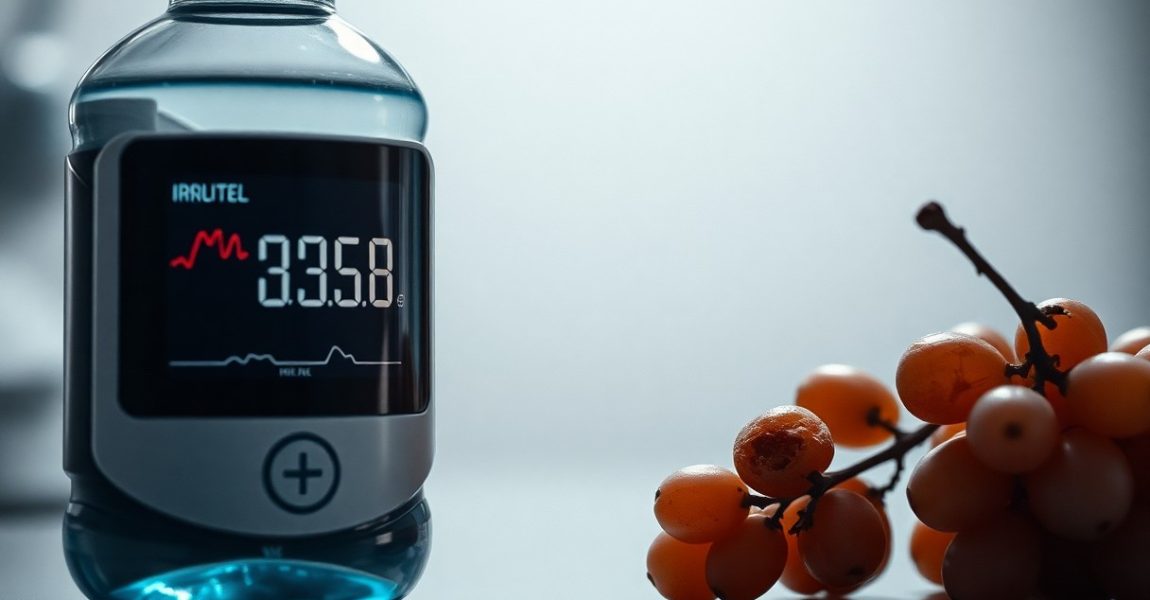
Over the course of your daily life, you may not realize how dehydration can significantly impact your heart health . When your body lacks sufficient fl ...

You might be experiencing persistent fatigue and brain fog and not realize that dehydration could be the underlying cause. When your body lacks enough ...

Health depends on many factors, and your hydration habits play a vital role in maintaining a robust immune system. When you experience chronic dehydration, your body’s ability to fight off infections weakens, leaving you vulnerable to illness. Even mild dehydration can impair immune response, increasing your risk of prolonged sickness. By understanding how water affects your immune function, you can take proactive steps to strengthen your defenses and improve overall well-being. If you’re looking for ro water for office or residential, visit our website for more details.
1. Chronic dehydration impairs immune cell function and response.
2. Lack of fluids reduces lymphatic system efficiency.
3. Dehydration decreases production of infection-fighting antibodies.
4. Toxins build up, weakening immune defense mechanisms.
5. Proper hydration supports optimal circulation of immune cells.
6. Staying hydrated helps maintain balanced inflammation levels.

Your body’s immune defenses rely heavily on a well-hydrated environment to function optimally. Water serves as the medium for billions of cellular processes, including immune cell transportation and nutrient delivery. Without adequate hydration, your body struggles to maintain the fluid balance necessary for immune cells to circulate effectively, which can slow down your response to pathogens. Research shows that even mild dehydration, defined as a fluid loss of 1-2%, can negatively affect your immune function by impairing the clearance of toxins and reducing the efficiency of immune signaling pathways. Boost your body’s balance and stay energized with alkaline water — a refreshing way to hydrate while supporting pH levels and overall wellness, one sip at a time.
Water aids in maintaining the homeostasis of every cell in your body, facilitating the movement of nutrients, oxygen, and waste products. At the cellular level, water makes up around 70% of cell composition, creating an ideal environment for enzymes and biochemical reactions critical to immune defense. When cells become dehydrated, their membranes stiffen, restricting the ability of white blood cells to migrate and eliminating harmful invaders. This diminishes the ability of your immune system to detect and respond promptly to infections.
Dehydration disrupts the transportation of lymph, the fluid that carries infection-fighting white blood cells. Inadequate fluid intake means lymph flow slows down, reducing your immune surveillance capabilities. Without efficient lymph movement, your body takes longer to detect and eliminate pathogens, resulting in a weakened inflammatory response. Studies suggest that even small deficits in hydration can raise susceptibility to illnesses such as colds and respiratory infections.
Further compounding the issue, dehydration triggers elevated levels of the stress hormone cortisol, which suppresses the production of lymphocytes, key players in your adaptive immune system. This hormonal shift not only diminishes your body’s immediate defenses but also hampers the development of long-term immunity after vaccination or infection. The cumulative effect is a compromised immune system that struggles to mount an efficient response against invading microbes.
Chronic dehydration often goes unnoticed because many symptoms mimic everyday issues or mild illnesses. You might experience persistent fatigue, frequent headaches, dry skin, and brain fog, which can all subtly impair your immune defenses. These signs, if ignored, allow dehydration to drain your body’s ability to fight off infections, making you vulnerable without obvious clues. Paying attention to these hidden symptoms can reveal underlying dehydration affecting your day-to-day function and immunity.
Feeling unusually tired or mentally sluggish? You might be pushing through mild dehydration, which reduces blood volume and oxygen supply to tissues. Other subtle clues include reddened eyes, cracked lips, and constipation, all indicating your body’s struggle to maintain hydration. Spotting these signs early enables you to correct fluid intake before your immune system weakens further during critical times.
Low hydration levels can lead to impaired kidney function, reduced metabolic efficiency, and imbalanced electrolyte levels, all of which disrupt your immune cellular responses. For example, studies show dehydrated individuals have higher cortisol levels, impairing lymphocyte activity crucial for fighting pathogens. This creates a vulnerability to infections and prolongs recovery periods, highlighting the systemic effects chronic dehydration imposes on your health beyond thirst.
Diving deeper, the knock-on effects of dehydration extend to your cardiovascular system, where reduced blood volume forces the heart to work harder, increasing stress on your body. This stress can trigger inflammation, which paradoxically compromises your immune defense mechanisms. Moreover, dehydration lowers the production of saliva and mucus—your body’s first line of defense against airborne pathogens—allowing viruses and bacteria easier entry. Addressing dehydration can reverse these impacts, restoring harmony across your immune system and overall health.
Your body’s hydration status directly influences how effectively your immune system can respond to threats. Even mild dehydration reduces the efficiency of protective barriers like mucous membranes, making it easier for viruses and bacteria to invade. Research highlights that staying well-hydrated supports the circulation of immune cells and the elimination of toxins. For an in-depth look at this relationship, explore Does Dehydration Weaken the Immune System? Understanding the Connection.
Dehydration compromises immune function by thickening blood, which impairs the transport of white blood cells to infection sites. Fluid loss also diminishes lymphatic flow, reducing the removal of pathogens from your body. This weakened circulation slows your immune response, allowing harmful microbes to multiply more easily. Additionally, dehydration impairs the production of cytokines, chemical messengers that coordinate immune reactions, weakening your defense mechanisms at multiple levels.
With compromised barriers and sluggish immune responses, your susceptibility to infections rises notably during dehydration. Pathogens gain easier entry, increasing risks of respiratory illnesses and urinary tract infections. Persistent dehydration can also trigger chronic inflammation, unsettling immune balance and potentially intensifying autoimmune conditions where your body mistakenly attacks itself.
Research has connected chronic dehydration with heightened vulnerability to diseases like influenza and pneumonia, largely due to reduced mucosal protection and impaired pathogen clearance. Furthermore, prolonged dehydration-induced inflammation may exacerbate autoimmune disorders such as rheumatoid arthritis and lupus by promoting immune system dysregulation. By maintaining optimal hydration, you not only lower infection risks but also help preserve immune system equilibrium, which is vital in preventing autoimmune flare-ups.
Setting achievable hydration targets helps you stay on track with your fluid intake. Aim for about 3.7 liters for men and 2.7 liters for women daily, adjusting for exercise, climate, and health conditions. Monitoring your hydration through simple methods like checking the color of your urine—pale yellow indicates good hydration—can prevent chronic dehydration before symptoms escalate. Using apps or setting reminders can further reinforce these goals, ensuring you maintain consistent fluid levels throughout the day.
Tracking hydration can be as straightforward as carrying a refillable water bottle marked with time goals or leveraging smartphone apps that prompt fluid intake. Consuming water steadily helps prevent the shock of gulping large volumes infrequently, which can stress your kidneys. Integrate beverages like herbal teas and water-rich foods—such as cucumbers and watermelon—to diversify sources. Logging your daily intake shifts hydration from abstract advice to measurable progress, making it easier to identify patterns or lapses that might be weakening your immune defense.
Physical activity demands tailored hydration strategies. Before exercise, drinking about 500 ml of water 2 hours prior primes your system. During workouts lasting longer than 30 minutes, sip fluids every 15–20 minutes, and incorporate electrolyte-rich drinks for sessions exceeding 60 minutes to replenish sodium and potassium lost through sweat. Post-exercise, rehydrate with 1.5 times the body weight lost in fluids to fully restore balance and support immune recovery.
Further, customizing hydration based on the intensity and environment of your activity can significantly optimize immune support. For example, running in hot, humid climates accelerates sweat loss, underscoring the need for electrolyte supplements and frequent sips beyond water alone. On cooler days or during moderate-intensity workouts, plain water may suffice. Using wearable tech to monitor sweat rate or body weight change before and after exercise offers personalized insights, ensuring you never unintentionally undermine your immune system by underhydrating during physical stress.
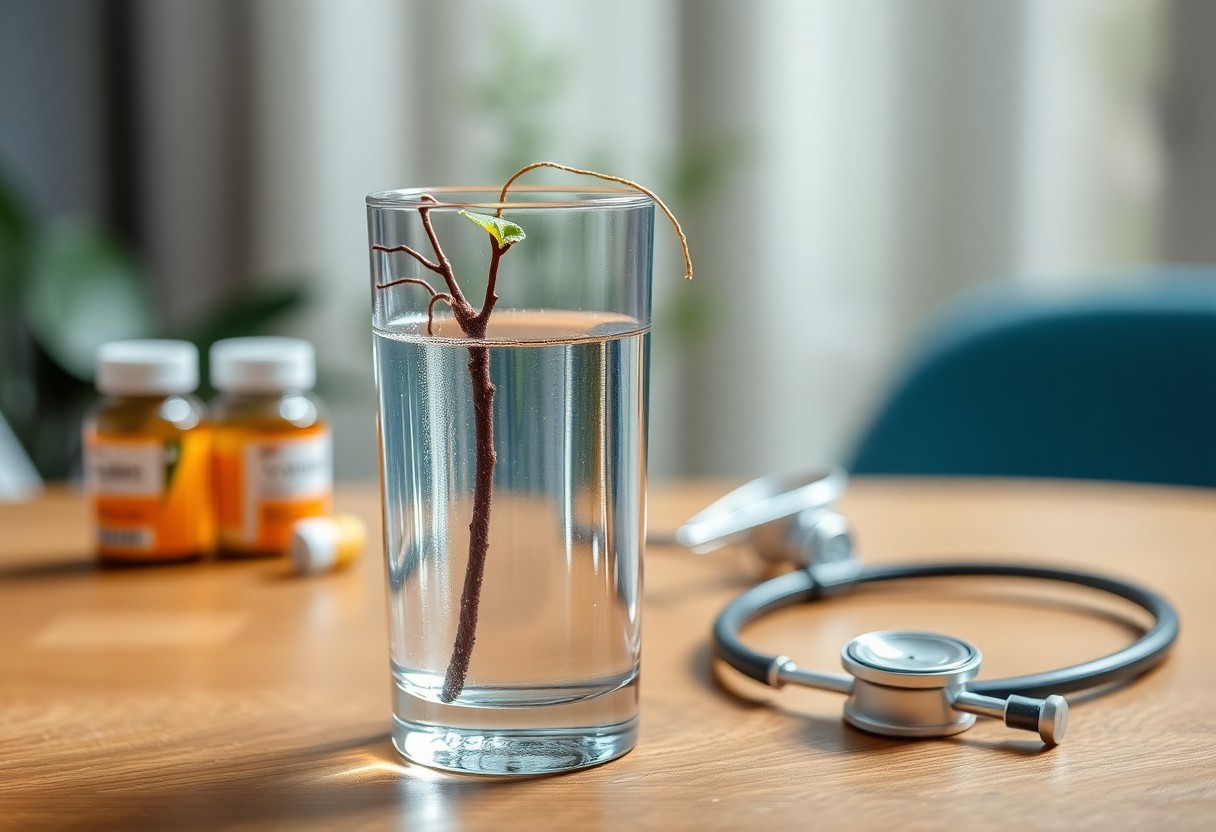
Dehydration silently drains your immune system’s efficiency, leaving you vulnerable to infections. Make hydration non-negotiable in your daily health routine by consistently drinking fluids throughout the day. You can reinforce this habit by carrying a water bottle, setting reminders, or choosing hydrating foods like cucumbers and watermelon. Staying well-hydrated strengthens your body’s natural defenses and supports faster recovery when illness strikes, empowering you to take control of your health proactively.
Incorporate hydration seamlessly by linking water intake with existing habits—sip a glass after brushing your teeth, during breaks at work, or before meals. Utilizing apps to track your fluid consumption can provide visual progress and motivation. Experiment with infused waters using herbs or citrus to diversify taste and keep hydration enjoyable. These small adjustments create a sustainable water-drinking habit that becomes second nature without disrupting your busy lifestyle.
Consistent hydration yields benefits beyond immediate immune support; it improves cognitive function, enhances digestion, and promotes cardiovascular health. Over months, well-hydrated cells maintain elasticity and vitality, slowing premature aging of tissues and organs. Studies link sustained water intake to reduced risks of certain chronic diseases like kidney stones and urinary tract infections, illustrating how hydration contributes to lifelong resilience and well-being.
Deeper research reveals that maintaining optimal hydration levels supports a balanced inflammatory response, which helps prevent chronic low-grade inflammation implicated in diseases like diabetes and heart disease. Your lymphatic system, responsible for waste removal, relies on fluid to function properly, reinforcing immunity over time. By embedding adequate water intake into your lifestyle, you not only fend off immediate illnesses but also fortify your body’s defenses against long-term health challenges, ensuring a stronger, more vibrant you.
Taking this into account, you should recognize how chronic dehydration may be undermining your immune system’s effectiveness. When your body lacks adequate water, it struggles to eliminate toxins and deliver important nutrients, thereby weakening your defenses. By ensuring you stay properly hydrated, you empower your immune system to function optimally and better protect you against illness. Prioritizing hydration is a simple but powerful step towards reinforcing your overall health and resilience.
A: Chronic dehydration reduces the efficiency of the immune system by limiting the body’s ability to flush out toxins and waste products. When the body lacks adequate fluids, it affects the production and transportation of lymph, which is important for immune function. This can lead to a weakened defense mechanism and increased vulnerability to infections.
A: Yes, dehydration can negatively impact white blood cell (WBC) production. White blood cells are vital for fighting off infections, and insufficient hydration can slow down their production and function, compromising the body’s capacity to respond to pathogens effectively.
A: Water is important for keeping mucous membranes moist. Mucous membranes in the respiratory and digestive tracts act as physical barriers and traps for harmful microbes. Dehydration may cause these membranes to dry out, reducing their ability to protect against the entry of viruses and bacteria.
A: Signs that dehydration could be impacting immune health include persistent fatigue, frequent infections or illnesses, dry mouth, dizziness, and dark-colored urine. If someone frequently experiences these symptoms alongside insufficient fluid intake, their immune system may be compromised due to dehydration.
A: The amount of water needed varies by individual, but a general guideline is about 8 cups (64 ounces) per day for adults. Drinking enough fluids consistently throughout the day helps maintain optimal immune function by supporting circulation, detoxification, and cellular repair processes.